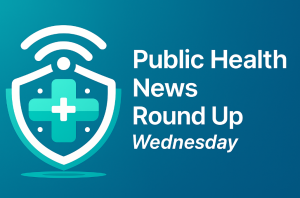
This Week In Public Health: Understanding the Rising Threat of Discordant Messages on Vaccinations
In recent times, one of the loudest critiques in public health discourse has centered on vaccine skepticism and misinformation. Conspiracies, misinformation, and disinformation have not only shaped how individuals perceive vaccines but also influenced the formation and enforcement of public health policies.
The Landscape of Vaccine Misinformation
Vaccine misinformation isn’t new, but its scope has exponentially widened with social media’s advent. According to The New York Times, legal controversies have further fueled public skepticism about the intentions behind vaccine mandates, particularly amid political maneuverings. The Science Daily notes how flawed studies initially accepting vaccine efficacy have added embers to this fire, igniting widespread distrust.
Social and Political Dimensions
The socio-political implications of vaccine hesitancy are significant and cannot be overstated. As reported by BBC News, the resurgence of measles in the U.S., reaching a 33-year high, isreminder of how vaccine misinformation can lead to public health regressions. Furthermore, BBC’s reporting highlights, “the interplay between public health narratives and individual actions,” illustrating the societal layer to this issue.
“Medical societies and advocacy groups have begun increasingly turning to litigation to combat misinformation and its resultant public health risks,”.NYTimes
Global Implications and Responses
Internationally, vaccine hesitancy is not just a local issue but a global crisis.
The United Nations reports that misinformation affects not only vaccination rates but also exacerbates existing health inequities. In regions where health infrastructure already struggles under systemic challenges, misinformation perpetuates the continuation of vaccine-preventable diseases and stalls years of public health progress.
Strategies for Combating Misinformation
Combatting misinformation involves strategic interventions spanning both technology and grassroots advocacy:
- Tech-driven Solutions: Using AI and big data analytics to identify and counteract misinformation hotspots swiftly (New Scientist).
- Community Engagement: Public health officials are collaborating with local leaders to reinforce trust and deliver tailored health education campaigns, a shift championed by organizations such as the WHO and UNICEF.
- Policy Interventions: Governments and health organizations globally are considering stricter regulations and policies to curtail misinformation as part of broader health policy frameworks.
The Path Forward
An imperative underscores the significance of understanding the psychology behind vaccine hesitancy and misinformation to integrate science-based communication strategies. Public health requires not only breakthroughs in medical research but also trust and cooperation between science communicators, policy-makers, and the public at large.
In conclusion, combating misinformation is a complex challenge that demands a multifaceted approach. From grassroots education to leveraging digital technology, effective strategies will require a concerted, well-supported effort that unites cross-sectoral expertise to protect and promote public health globally.
For more, read our interview with Matthew Facciani.



